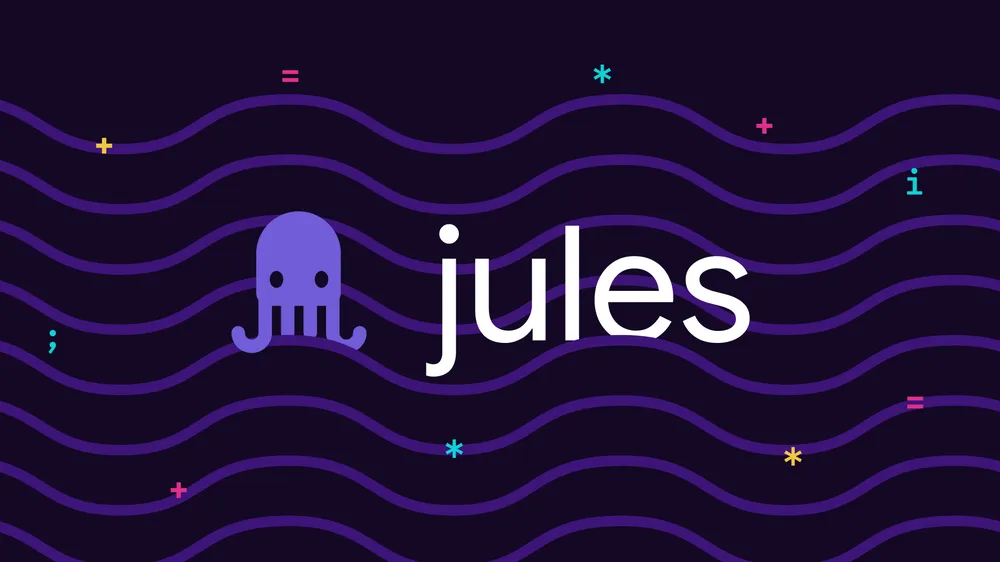
Jules: My New Favorite AI Coding Assistant

Theodoros Dimitriou
August 11, 2025 • 3 min read • AI

🤖 What Makes Jules Different?
Jules is an asynchronous, agentic coding assistant that integrates directly with my existing repositories. It clones my codebase into a secure Google Cloud VM, understands the full context of my project, and gets to work on tasks I assign it. This asynchronous nature is a game-changer. I can delegate a task to Jules and switch my focus to something else, knowing that it's working in the background.
Here's a quick look at how I've been using it:
- Bug Fixing: For small to medium-sized bugs (affecting one or a couple of functions), Jules is a lifesaver. It analyzes the code, proposes a fix, and presents a diff for my review. It's like having a junior developer who is eager to squash bugs.
- Code Review: I often ask Jules to review my code for potential improvements, style inconsistencies, or missed edge cases. Its suggestions, powered by the advanced reasoning of Gemini 2.5 Pro, are surprisingly insightful.
- Writing Tests: This is where Jules truly shines. Writing tests can be tedious, but Jules handles it with ease, allowing me to maintain high test coverage without the usual grind.
Here's a little demo of Jules in action:
🌟 From Beta to Public: Now for Everyone
The big news is that Jules is now in public beta, available to everyone worldwide where the Gemini model is available. During its private beta, it handled tens of thousands of tasks, resulting in over 140,000 code improvements. That's some serious real-world testing!
With the public launch, Jules is now powered by Gemini 2.5 Pro, which means higher-quality code outputs. Google is also introducing structured tiers, including a generous free tier that's perfect for getting to know Jules. For those who need more power, the Google AI Pro and Ultra subscriptions offer significantly higher usage limits.
💭 My Honest Take
I'm genuinely excited about Jules. It's not perfect, and I still meticulously review every change it proposes. But it's the first AI coding tool that feels like a true partner in the development process. It respects my control, showing me its plan and reasoning before making any changes, and allows me to steer it as needed.
The fact that it's now freely available makes it a must-try for any developer looking to enhance their workflow. It's a testament to how far agentic development has come, moving from a prototype to a polished, productive tool.
If you want to see the official announcement, you can check out the video from Google below. Give Jules a try—I have a feeling you'll be as impressed as I am.
Share this post
Help others discover this content by sharing it on your favorite social networks!
Subscribe to my Newsletter
Stay informed with the latest updates and insights.

Theodoros Dimitriou
Web Developer & AI Enthusiast
Thank you for reading my blog post! If you found it valuable, please consider sharing it with your network. Want to discuss your project or need web development help? Book a consultation with me, or maybe even buy me a coffee ☕️ with the links below. Your support goes well beyond a coffee drink. Its a motivator to keep writing and creating useful content.
You might also like
Container Server Nodes in Orbit: The Next Revolutionary Step?
My thoughts on a crazy idea that might change everything: 2,800 satellite server nodes as the first step in a new global computing market from space.
The humanoid Robot Revolution is Real and it begins now.
From factory floors to family rooms, humanoid robots are crossing the threshold—driven by home‑first design, safe tendon-driven hardware, and learning loops that feed AGI ambitions.
The first time the AI won the humans and a championship.
In 1997, IBM's Deep Blue defeated Garry Kasparov in chess—the first time an AI beat the reigning world champion in match play. Here's a comprehensive timeline of AI's most important milestones from that historic moment to 2025, including George Delaportas's pioneering GANN framework from 2006.
Vibe-Coded Websites and Their Technical Weaknesses
AI-generated websites look stunning but often ship with basic technical issues that hurt their performance and accessibility. Here's what I discovered after analyzing 100 vibe-coded sites.